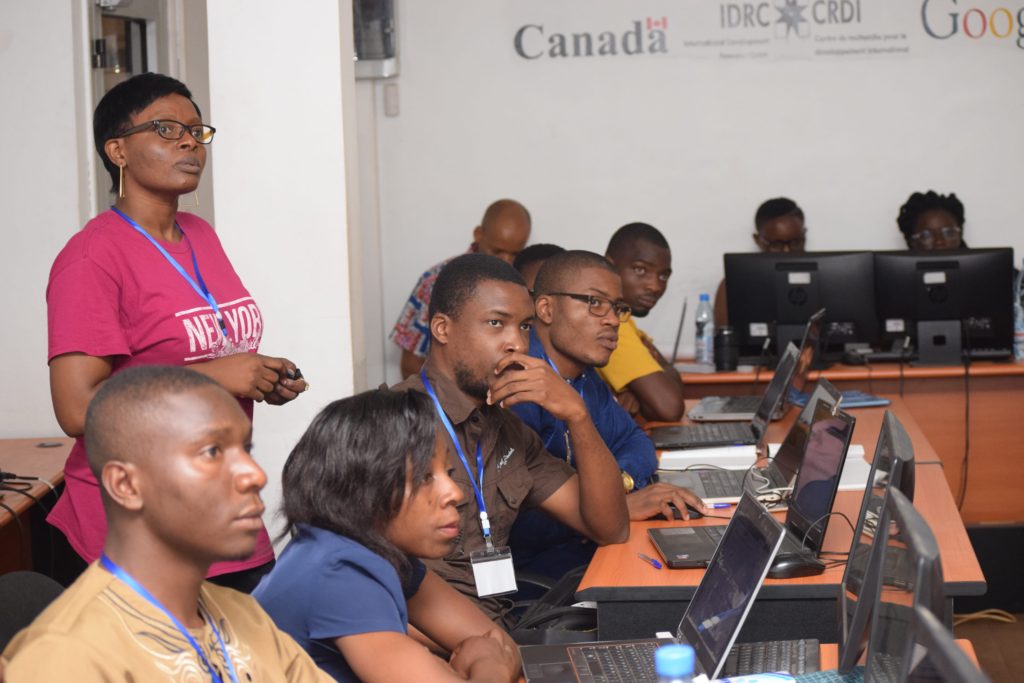Selected based on their passion for Data Science and Big Data Analytics, with at least a 4 years’ undergraduate degree or a minimum 2 to 3 years of work experience as a professional in Statistics, Information and Technology and other Data Science related topic, 36 young Cameroonians including 15 females convened at the AIMS TTP Laboratory situated at the Higher Teachers Training College (ENS) Yaoundé for a 5-day capacity building training in Big Data.
During the 5-days of intense training, Dr. Dustan Matekenya, Data Scientist at the World Bank, introduced participants to Python for Data Science, Big Data Analytics Processes and Machine Learning tools.
The event’s opening ceremony on February 24th 2020 saw Prof. Roger Atsa Etoundi, Director of Information Systems at the Ministry of Higher Education, beseeching the trainees to use the knowledge gained to tackle Africa’s development problems.
“To be a Data Scientist, we ought to be able to solve real world problems using big data based on data analysis. The training is an opportunity for young Cameroonians to gain information regarding this new scientific domain and gain knowledge that can help them to address our development issues based on ICT and data” he said. In his explanation on the process of using Big Data to solve problems, Prof. Etoundi made mention of the Bafoussam-Douala-Yaoundé road which he described as the deadliest triangle highway in the country. He said in order to curb deaths on these roads, there needs to be available data on the death tolls, which can be read, studied, analyzed and solutions provided.
Prof. Dr. Mama Foupouagnigni, AIMS-Cameroon’s Centre President, joined his voice to that of Prof. Etoundi to reiterate on the development benefits of such a program to Cameroon’s economy.
“The Bafoussam-Douala-Yaoundé road is one of the deadliest roads in the country. Accidents on this road are blamed on over-speeding, poor state of vehicles and the condition of drivers. Security Officers cannot control these but technology can do so efficiently. Technology, for instance, can detect that a vehicle’s tyres are worn out and that a driver has covered over 1000km, thus he is tired”.
On his part, Dr. Charles Kimpolo, Director of the AIMS-NEI Industry Initiative, outlined the objectives of the program while urging the participants to be proud as they were selected from a pool of 233 applicants.
The program officially closed on Friday February 28th as all 36 participants were awarded certificates.
Enriched with the tools needed to propel Africa’s self-sufficiency, the trainees expressed joy as they outlined some of the ways in which they hope to make use of the knowledge gained.
“We have practically gone through the processes of analyzing data, web scraping, big data analysis and building machine learning models. We see applications in improving data collection in government agencies, businesses and non-governmental organizations.” Participant’s representative, Mpara Faith, noted while acknowledging the excellent delivery efforts of the trainer.
Cameroon now marks the 3rd African country where the Big Data for Development Short Course Program has been implemented after Rwanda and Senegal.
“We are going to implement same program in Ghana from April 14th to 18th 2020” Dr. Charles Kimpolo divulged.

